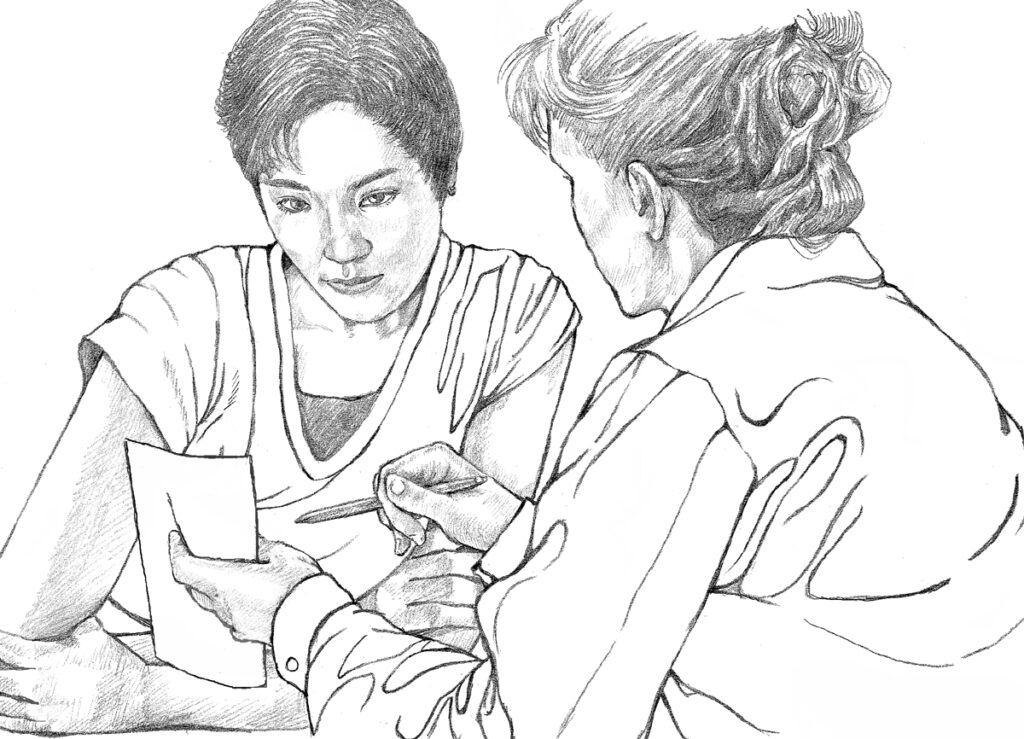The sinuses are known as hollow spaces or cavities, which are four in number. These are interlinked by narrow channels and are located in the head. These sinuses are responsible for forming a thin fluid that travels through the nose and drains itself. This system of drainage keeps the nose clean at all times and free of bacteria.#
Now, there are four types of sinus chambers located in the various areas of the face:
- Maxillary Sinuses: Most prominent sinus that is located in the cheekbones.
- Frontal Sinuses: Located in the low center of your forehead.
- Ethmoid Sinuses: Located in the middle of your eyes.
- Sphenoid Sinuses: Located in the bones behind your nose.
Hence when you get infected with a sinus infection, one of these four chambers of sinuses is inflamed, and fluid fills up. This can cause you to feel uncomfortable overall with a runny nose along with congestion. Sinusitis is an alarming health problem. So let’s dive a little deeper into its types, causes, symptoms, and treatment.
Types Of Sinusitis Infections
Various types of sinuses can attack your sinuses:
1. Acute Bacterial Sinusitis
Acute Bacterial Sinusitis (also known as acute rhinosinusitis) is defined as short-term inflammation of the sinuses. In most cases, it becomes swollen as well. Both of these conditions interfere with the mucus and the drainage system.
Due to the blockage in the system, the fluid can cause your sinuses to become infected. Usually, acute bacterial sinusitis lasts over a month, but it can also last ten days and disappear.
The symptoms include:
- Congestion – i.e. blockage or stuffiness of the nose. It can make it harder for the infected individual to breathe through the nose.
- A thick yellow or greenish mucus appears while having a runny nose.
- The infected person can also have facial pain such as pressure around the cheekbones and eyes or tenderness.
Another category belonging to acute sinusitis is sub-acute sinusitis. Sub-acute sinusitis lasts for around three months. You may get seasonal allergies or bacterial infections alongside the condition itself.
2. Chronic Sinusitis
Chronic sinusitis lasts over three months. Usually, this condition isn’t severe and doesn’t cause much trouble.
If your sinusitis infection lasts more than three months, then you may have contracted chronic sinusitis. In these cases, you can experience consistent inflammation of your sinuses. It can occur due to infection, growth in sinuses or by the swelling of the lining of your sinuses.
Significant symptoms of chronic sinusitis are as mentioned:
- You sense a feeling of reduced sense of taste and smell.
- Inflammation of the nose.
- Postnasal drainage – this is drainage that goes down the throat.
- A stuffy nose that makes it hard to breathe.
- You sense a feeling of reduced sense of taste.
3. Recurrent Sinusitis
The term “Recurrent Sinusitis” is used when the sinus infection symptoms come back four to five times in a year – hence the name.
In addition to pain and discomfort, recurrent and untreated sinus can develop into dangerous infections that can permanently damage your sinus cavities.
Acute sinus is common, but recurrent and chronic are not. Therefore you must see a doctor immediately if you experience any of the types of symptoms mentioned in each class.
Causes Of Sinusitis Infection
Though more viruses cause sinus infections, bacteria can also cause some sinus infections. Some of the reasons are as listed:
- The common cold.
- A weak immune system.
- A deviated septum – the septum is a line of cartilage that divides your nose. A deviated septum means that your nose isn’t straight; hence it is way closer to the one side of your nasal passage which can eventually cause a blockage.
- Smoking.
- Allergies.
- Nasal polyps – these are small, painless, non-cancerous growth lining in the sinuses. This usually occurs in people who have a history of asthma, repeated infections, and allergies.
Nonetheless, if you have any of these symptoms, you can suspect a sinus infection, and seeking professional help would thus be beneficial.
Symptoms Of Sinusitis Infection
There is quite a long list of symptoms of sinus infections that make it relatively easy to pinpoint whether you are suffering from a sinusitis infection.
As described earlier, the most common symptoms of sinusitis are; stuffed/blocked nose, runny nose, bad breath, and facial pressure. However, we shall now look into some complex signs that also point toward the potential existence of a sinus infection.
1. Discomfort and Pain
Pain will be evident in your sinuses when you are infected. Sinuses behind the eyes and nose will be inflamed and swollen, thus causing pain. Not only that, but you can also experience headaches and pain in your jaws and teeth.
2. Discharge from the nose
Nasal discharge that is thick and green or yellow will show up because you’ll be blowing off your nose quite often when infected. This discharge shall come from your infected sinuses that flow through your nasal passages. This drainage can also pass through your throat, and you’ll feel itchiness or a sore throat.
3. Cough and Irritation
As your discharge flows through the throat, it may irritate you for a long time. It may also cause an annoying episode of coughing from time to time. In addition, it can be the reason for the difficulty in sleeping. Placing a pillow right below your head and keeping it elevated would help ease the discomfort caused by the coughing.
4. Throat Pain
The discharge traveling from your nose to the throat is known as the postnasal drip. Postnasal drip can leave you with an aching and sore throat. If the infection lasts longer, the mucus dripping can aggravate and irritate your throat as it drips. This can result in a deep and hoarse voice as well.
Treatment of Sinusitis Infection
Treatments depend on the severity of the case. In any matter, you must discuss everything with your doctor before you do anything.
Simple Treatment
If you have a simple infection, your doctor may recommend a decongestant and saline nasal washes. The nasal spray breaks apart your dried mucus and aids in keeping your nose moist. You can also drink many fluids as most of these infections are viral.
Complex Treatment
If the symptoms don’t improve or worsen in 10 to 14 days, then your doctor may recommend antibiotics for a specific period. It’s a high chance you might have a chronic sinuses infection.
In other cases, antihistamines help fight the inflammation that occurs because of allergies that can swell your sinuses or nasal passages.
Your doctor can also suggest the option of surgery if the case doesn’t seem to be controlled with time or medication.
Conclusion
A sinusitis infection isn’t an issue in most cases if you catch on to the symptoms and schedule a meeting with your doctor. Listen well to your doctor, and you might as well recover soon.




Recent Comments